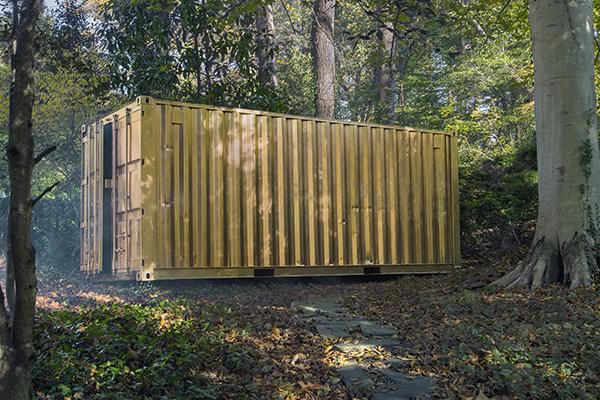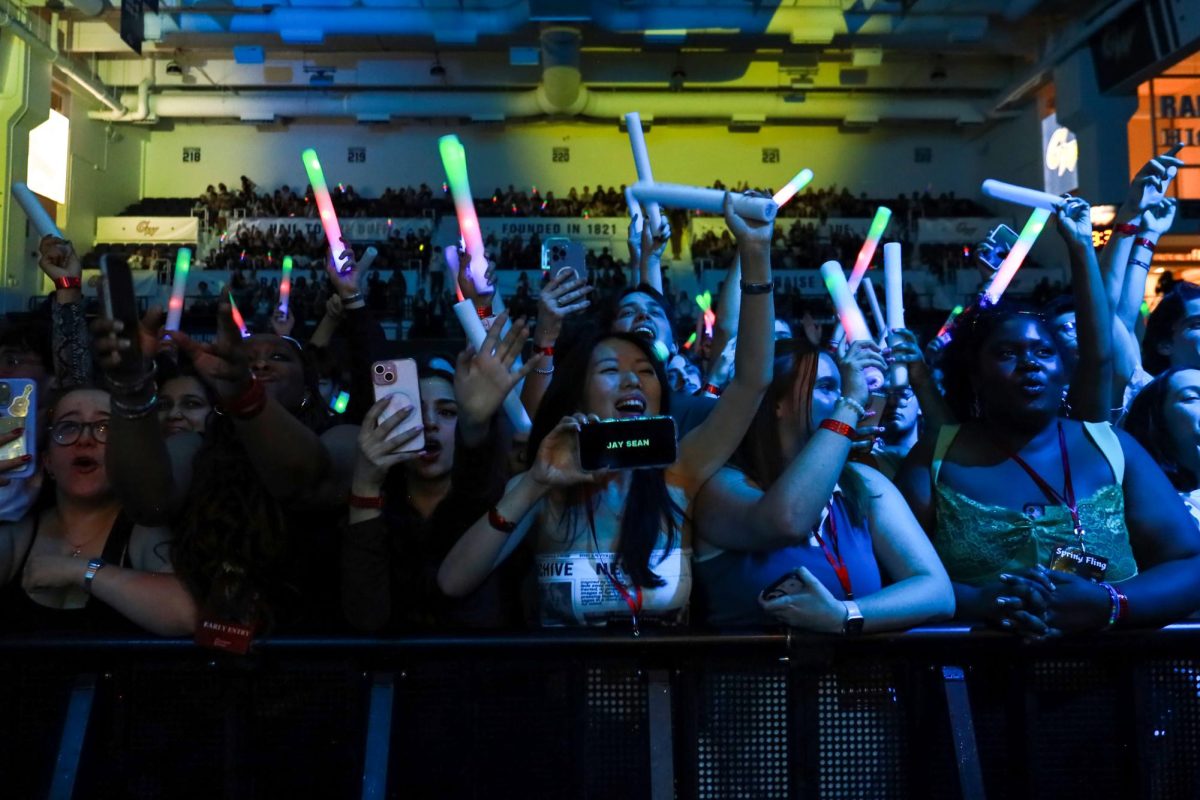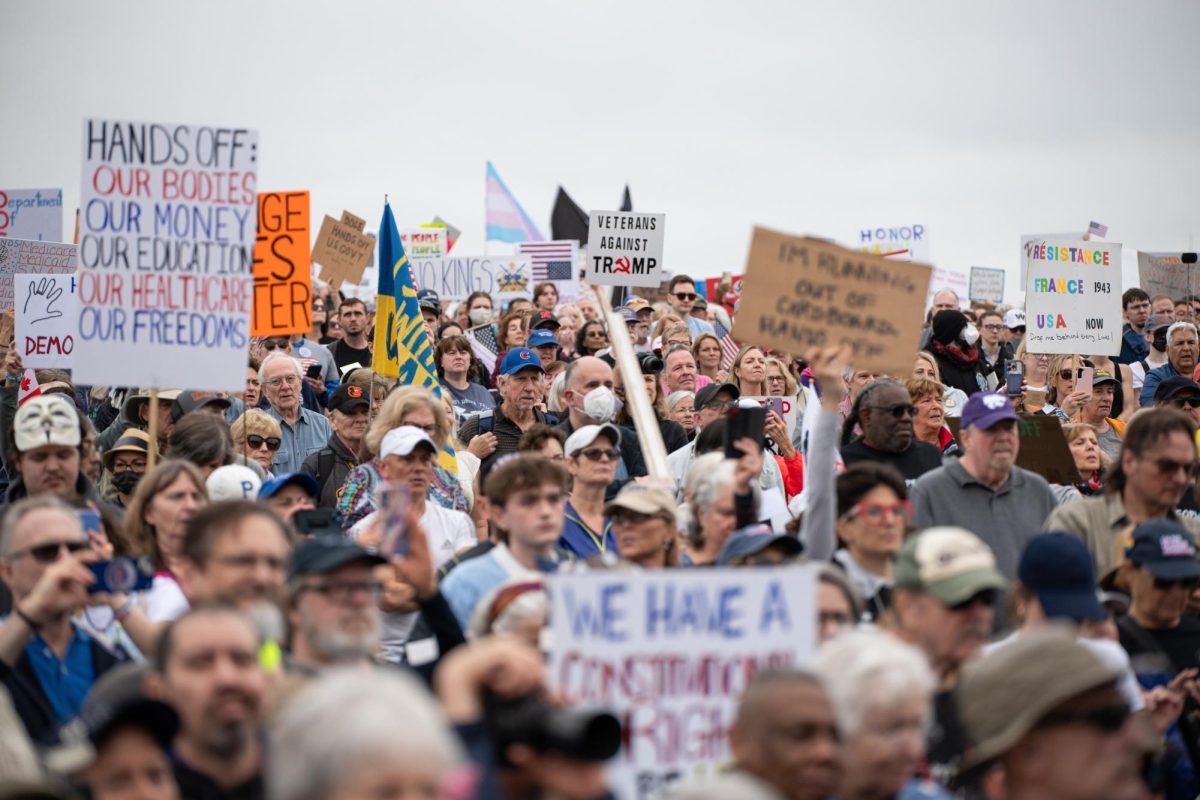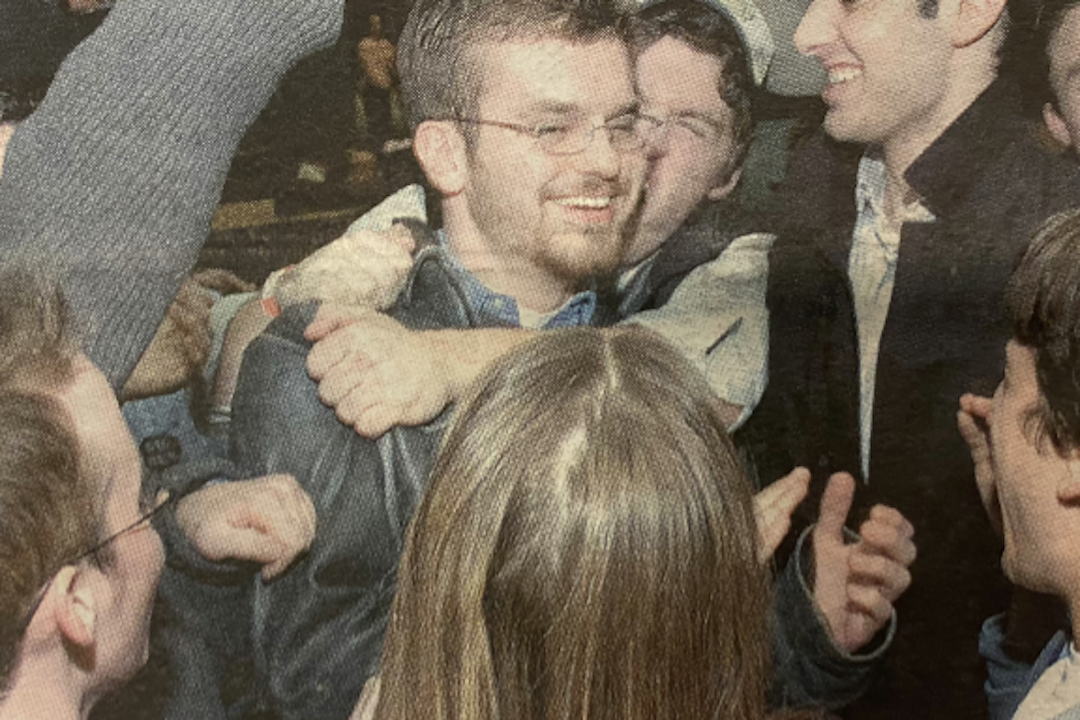Amar Bakshi was imprisoned in Zimbabwe on espionage charges when he was studying as a senior at Harvard University. He was a special assistant to Susan Rice, U.S. Ambassador to the United Nations, when Barack Obama came into office, and he is a Truman Scholar and Soros Fellow.
He has also spent the last year and a half re-purposing train cars by painting them gold and, with the help of architects and engineers, equipping them with audio-visual technology so that when participants step inside, they are face to face with someone who is likely thousands of miles away.
The spaces are called portals and they are part of Shared_Studios, a multidisciplinary art and technology project that is just as unique as Bakshi. When I interviewed him, he had spent the day reading about art and on LinkedIn, Bakshi’s interests are painting, acting and squash.
From June 6 through June 21, one of the gleaming shipping containers will be in Woodrow Wilson Plaza near Federal Triangle, where users can interact with people in Havana, Cuba.
Participants talk to someone in another country for 20 minutes in immersive full-body video chats. Bakshi said the initial moments are the most awkward for the strangers because people tend to small talk, like asking about the weather in their respective regions.
“But once you pass the threshold of 12 or so minutes, there are quite a variety of conversations,” he said. “They can become very personal. People come out of it giddy, weeping, agitated. Most of the time it turns out not to be so scary.”
With help from locals, Bakshi constructed each of the portals. He thought of the idea around January 2014 and spent the next five months researching and reaching out to “various folks like projector and camera manufacturers.”
He also spoke to acquaintances from New York to the Middle East who were “incredibly excited about the idea,” like Lauren Scott Miller, the director and founder of Lu Magnus in New York, who offered Bakshi a show in the art gallery soon after he explained the concept.
Bakshi’s first portals were in an exhibit at the Lu Magnus Gallery and a public space in Tehran, Iran. Two other portals were set up between the Yale University Art Gallery and Sazmanab Center for Contemporary Art, also in Tehran, and the most recent portal was between Georgetown University and Hariwa University in Herat, Afghanistan. The portal in Georgetown was the first to be in an outdoor, public space instead of an art gallery.
Bakshi also said that the portal’s artistic form allowed for the relaxation of social norms, so that for some Iranians and Afghans, it was the first time they were, albeit virtually, alone with someone of the opposite sex.
“It’s an opportunity to puncture or change broad perceptions,” he said. “Because it’s private, because it’s one on one, there’s the potential to have any type of encounter. It’s fleeting, and you’re free to ask stupid questions, say the embarrassing things,” he said.
Bakshi’s goal is to unveil a little bit about humanity with each of the conversations and expand networks of portals all over the world. Shared_Studios lists Nashville, Beirut, Lebanon and Detroit as “upcoming portals on the horizon.”
“I would love to have it in many different types of spaces, like, ‘Woah, what the hell is that?’ The idea has some power when it’s a mundane thing, dropped in the middle of a public space and you’re like, what a wild thing to see,” he said.







